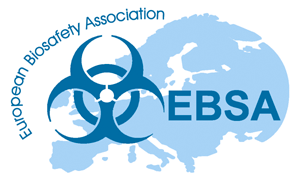Pre conference course C - Field Biosafety perspectives on One Health: From sampling multiple species to working in a Mobile Lab - Instructors
Pre conference course C - Field Biosafety perspectives on One Health: From sampling multiple species to working in a Mobile Lab
About the speakers
-

Emily Nelson
Since 2021 Dr. Emily Nelson is the operations manager for the European Mobile Laboratory (EMLab) and coordinator of the European Virus Archive-global (EVA-g) projects at BNITM.
She has deployed for multiple outbreak response and capacity building missions including COVID-19 (Greece, 2020-2021), Guinea, 2021-2022), Ebola and Marburg viruses (Sierra Leone, 2015; Guinea, 2021), Lassa virus (Sierra Leone, 2023). She works closely with the World Health Organization (WHO) as part of their Rapid Response Mobile Laboratory (RRML) initiative, contributing to the guidelines on minimum standards for mobile laboratory operations and participating in full scale mobile laboratory field exercises (Russian Federation, 2021, Türkiye, 2023).
Her area of expertise covers diagnostic of RG 4 pathogens (Ebola, Marburg, Lassa, and other hemorrhagic fever viruses), mobile laboratories, molecular diagnostics including Next Generation Sequencing (MinION), biosafety and biosecurity, operations and support logistics.
Academic Education and Degrees
Dr. Emily Nelson obtained her PhD in Microbiology and Immunology at the Boston University School of Medicine, National Emerging Infectious Disease Laboratories in 2016. As postdoctoral fellow at the Bernhard Nocht Institute for Tropical Medicine (BNITM) she studied human immune responses to Ebola virus infections and gained extensive experience in working in BSL-3/4 laboratories as well as resource limited settings.
-

Karin Darpel
Karin is a veterinarian with almost 20 years’ experience investigating the transmission, pathogenesis and immune responses of high impact transboundary viruses of livestock to apply improved prevention and control measures.
She is the group leader for Highly Contagious Epizootic Viruses within the Department of Diagnostics and Development at the Institute of Virology and Immunology (IVI) in Mittelhäusern, Switzerland. The IVI is the National Reference Laboratory of Switzerland for several highly contagious and vector-borne animal and zoonotic viruses including Highly Pathogenic Avian Influenza Viruses, Foot- and -Mouth disease virus and African Swine Fever Virus.
Previously Karin worked for many years as a scientist and research group leader at the Pirbright Institute and University of Surrey in the UK.
Throughout her professional career Karin has worked with animal pathogens of risk group 4 and zoonotic agents of risk group 3 within high containment facilities conducting not only in-vitro laboratory diagnostics and research but also infection studies in many different livestock species such as cattle, sheep, goats and pigs. Biosafety protocols were especially critical during the last infection studies of the now extinct Rinderpest Virus in cattle.
As part of her work Karin has further also been involved in surveillance projects or field sampling of animals and insect vector handling for notifiable veterinary diseases including in Low-and-Middle-Income-Countries (LMICs).
Academic Education and Degrees
Karin Darpel graduated as a veterinarian from the School of Veterinary Medicine in Hannover, Germany followed by a PhD in Virology at the Royal Veterinary College/ The Pirbright Institute in the UK. She also obtained a Postgraduate Certificate in Veterinary Epidemiology and Public Health from the Royal Veterinary College London and a Graduate Certificate in Learning and teaching from the University of Surrey, UK.
-

Sophie Duraffour
Dr. Sophie Duraffour currently leads the groups Outbreak Preparedness and Response (OPR) within the Virology Department of the BNITM and Mobile Laboratories as part of the Research Infrastructure. The Virology department, headed by Prof. Stephan Günther, is operating a biosafety level 4 laboratory, hosts the World Health Organization collaborating center (WHOCC) for arboviruses and hemorrhagic fever viruses and is a partner of the Global Outbreak Alert Response Network (GOARN). The OPR group coordinates the European Mobile Laboratory (EMLab) which offers state-of-the-art laboratory support for pathogens up to risk group 4 in emergency situations through activation and deployment mechanisms of the European Union Civil Protection Pool (ECPP) and or WHO/GOARN. Activities of her group are dedicated to reinforcing surveillance and research capacities in Sub-Saharan Africa through capacity building programs and also to rapidly respond to outbreaks and support operational research especially with molecular epidemiology (nanopore sequencing). Several joint-programs on viral hemorrhagic fevers (VHFs) with long standing collaborations in Nigeria and Guinea have yielded key findings on virus circulation, emergence and persistence during Ebola virus diseases epidemics, Lassa fever outbreaks, and Marburg virus disease emergence in West Africa.
Academic Education and Degrees
Dr. Sophie Duraffour completed her master degree in Cellular Biology and Physiology at Blaise Pascal University (Clermont-Ferrand, France) in 2003. Following a postgraduate degree in Tropical Diseases, she further obtained her PhD with the French Army in Transmissible Diseases and Tropical Pathologies from the Mediterranean University (Aix-Marseille, France) in 2008. After 6-years of postdoc at the Rega Institute (Leuven, Belgium) on poxviruses, she changed her focus and specialized in outbreak response (2014-2016, Guinea) and field operational research on viral hemorrhagic fevers during emergencies, mostly in Sub-Saharan Africa.
